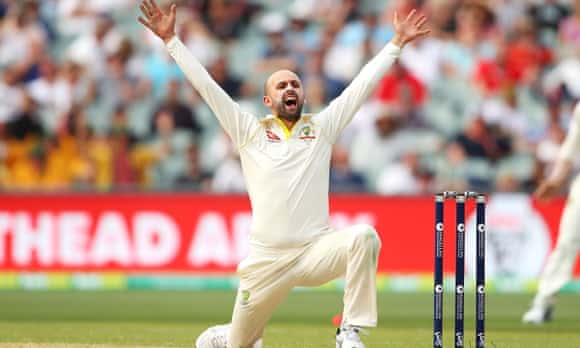 | Morning mail: New York subway blast injures four | Tuesday: Rush-hour explosion near Times Square was an 'attempted terrorist attack'. Plus: Turnbull's approval rating rises |  |  Police on 42nd Street in Manhattan shortly after an explosion on Monday. Photograph: John Moore/Getty Images
| Alison Rourke
| Good morning, this is Alison Rourke, standing in for Eleanor Ainge Roy, bringing you the main stories and must-reads on Tuesday 12 December. Top stories An explosion on New York City's subway during the morning rush hour that injured four people has been condemned as "an attempted terrorist attack" by the city's mayor, Bill de Blasio. Police arrested a 27-year-old man, Akayed Ullah, after the explosion about 7.20am in a passageway near 42nd Street and Eighth Avenue, in midtown Manhattan near Times Square. None of the injuries were life-threatening. The New York police commissioner, James O'Neill, said the suspect had "an improvised low-tech explosive device attached to his body". Ullah sustained burns to his hands and torso while the three other people suffered "ringing ears and headaches". Andrew Cuomo, the governor of New York, said an attack on the subway was "very frightening and disturbing" and "in many ways, one of our worst nightmares". Police were investigating Brooklyn properties connected to Ullah and his relatives shortly after the attempted attack. Early reports said he was originally from Bangladesh and had been in the US for seven years. The subway station where the blast happened is below Port Authority bus terminal, the busiest in the world, serving at least 65 million passengers each year. Malcolm Turnbull's approval rating has risen after a torrid parliamentary year that finished on a positive note with the marriage equality bill and Barnaby Joyce's byelection win. The latest Guardian Essential poll put Turnbull ahead of Bill Shorten as preferred PM with an approval rating of 41% (up 4% from last month), compared to Shorten's 36% (up 1%). But the survey of 1,831 voters put the Labor party well ahead of the Coalition, leading on the two-party preferred measure 54% to 46%. The government has now been behind for 72 polls. A fresh Newspoll published by the Australian on Tuesday morning also had the critical byelection contest in the Sydney seat of Bennelong on a knife edge, with the Liberal and Labor parties on 50-50. On the ABC's Q&A program on Monday night, Turnbull spruiked the Liberal incumbent John Alexander, declaring him "Australia's champion" and "Bennelong's champion". With controversy over Chinese influence proving a significant backdrop to Saturday's poll, a combative PM declared any suggestion that he was anti-Beijing as "outrageous" and "absurd". He also rejected a suggestion that Australia's intelligence agencies could have leaked details of a private conversation between the Labor senator Sam Dastyari and the Chinese businessman Huang Xiangmo, and insisted that when it came to combating Chinese interference in this country, Australia was entitled to stand up for its sovereign interests. Queensland's premier, Annastacia Palaszczuk, will confirm her government's veto of any loan to Adani from the the Northern Australia Infrastructure Facility as her new government is sworn into office today. The move to veto the Naif loan has frustrated the federal government, particularly the minister for resources and northern Australia, Matt Canavan, who last week told News Corp the Queensland government decision was motivated by "xenophobia" and "racism" – comments Bill Shorten's office labelled "unhinged". Palaszczuk's promise to veto the loan was seen as instrumental in saving south-east Queensland seats, particularly those in Brisbane, where preferences from the Greens proved crucial in deciding electorates. The Liberal National party is also expected to vote on its new leadership team today after Tim Nicholls' decision to step down as leader. Researchers have used DNA from the 106-year-old preserved remains of a juvenile thylacine or Tasmanian tiger to sequence the animal's genome, making it one of the most complete genetic blueprints for an extinct species. And they made some interesting discoveries – including that it is more closely related to the kangaroo than the dingo it resembles. Its visual similarity to the dingo was an "unbelievable" example of convergent evolution, according to the lead researcher, Andrew Pask from the University of Melbourne.
Environmental groups in Papua New Guinea and Australia are challenging a controversial and experimental deep-sea gold and copper mining proposal proposed for Papua New Guinea's waters. Nautilus Minerals Inc, a Canada-based company primarily owned by Russian and Omani mining firms, wants to extract gold and copper deposits from 1.6km below the surface of the Bismarck Sea, using a seabed mining technique never before used in commercial operations. Nautilus says it has conducted dozens of community meetings – reaching more than 30,000 people from nearby islands – and has had its key documents, including a detailed environmental impact statement, publicly available for years. But members of nearby communities, represented by the Port Moresby-based Centre for Environmental Law and Community Rights Inc, claim they were not adequately consulted and that they hold grave concerns about the mine's impact. |  |  Nathan Lyon was on the brink of being dropped. Now he is the linchpin of the Australian side. Photograph: Mark Kolbe/Cricket Australia/Getty Images
| Sport Australia's "Ashes angel" Nathan Lyon has England in a spin before the third Test in Perth, writes Vic Marks, who says it feels unprecedented before a big match at the Waca that batsmen should spend time fretting about playing against an off-spinner. In Perth the talk has always been about pace and bounce and how to counteract it. Now there is the suggestion that the pitch might not be so pacy, which means spin bowling could be more important. In football, the Champions League last-16 ties handed Manchester City potentially the most straightforward matchup against the Swiss champions, Basel. Manchester United will fancy their chances against Sevilla with the second leg at Old Trafford, and Chelsea will face a tough fight against Barcelona. Thinking time Survivors of sexual abuse will be "losing a powerful ally"and could feel "deserted" once the child abuse royal commission's work officially draws to a close, advocates fear. On Friday the royal commission will deliver its final report to the governor general in Canberra, marking the end of the five-year inquiry into how abuse was able to occur in more than 4,000 Australian institutions. Dr Judy Courtin, a lawyer who has represented dozens of survivors and their families, said she was concerned about the level of support for victims. "It's like having a favourite aunty who you totally trust and believe in, and they back and support you, and then suddenly they're not there," Courtin said. "There is a risk people will just feel deserted." Leonie Sheedy, co-founder of the Care Leavers Australasia Network, said: "Everyone will feel a sense of loss." A spokesman for the social services minister, Christian Porter, said supports for survivors and their families were encompassed in redress scheme legislation introduced in October. The latest release of the data on barriers to work shows that of the women not in the workforce who wanted a paid job, 50% were caring for their child, compared with just 12.5% of men in the same situation, writes Greg Jericho. The "children penalty" has long been a factor for women's workforce participation. It leads to the so-called "nappy valley" of employment for women – where there is a sharp drop in the percentage of women in work once they enter the prime childbearing and then raising years of the mid-20s to mid-30s. The problem is not just that the result for those women is a reduced income and less superannuation, they also struggle to return to work and miss out on opportunities for promotion and leadership roles.
A landmark trial for Huntington's disease has been hailed as "enormously significant" with results suggesting an experimental drug could become the first to slow the progression of the devastating genetic illness. It is the first time any drug has been shown to suppress the effects of the Huntington's mutation that causes irreversible damage to the brain. Current treatments only help with symptoms, rather than slowing the disease's progression. The results have caused ripples of excitement across the scientific world because the drug, which is a synthetic strand of DNA, could potentially be adapted to target other incurable brain disorders such as Alzheimer's and Parkinson's. What's he done now? Trump is angry about an article in the New York Times that took an inside look at the US president's typical day in the White House, complete with at least four hours of TV viewing: Another false story, this time in the Failing @nytimes, that I watch 4-8 hours of television a day - Wrong! Also, I seldom, if ever, watch CNN or MSNBC, both of which I consider Fake News. I never watch Don Lemon, who I once called the "dumbest man on television!" Bad Reporting. Media roundup Sam Dastyari's "shame" can be Australia's gain, according to the Sydney Morning Herald's Peter Hartcher. The SMH's political editor says the embattled Labor senator has done Australia a favour by providing "such a clear-cut case study in how easy and cheap it is for a foreign power to extend its reach covertly into Australia's parliament". Brisbane's Courier-Mail splashes on the "ice epidemic" in Queensland. It says a third of the 746 children who went into state care in 2016 had parents who use or had used ice. And Tasmania is attracting more international tourists than any other state, according to the Hobart Mercury. It says 267,000 came last year – a rise of 33% on the previous year. Coming up The high court will hear the section 44 case of the Nationals MP and assistant minister David Gillespie, whose eligibility to sit in parliament has been challenged. Unlike previous section 44 hearings, Gillespie's case centres on a potential financial conflict of interest rather than the constitution's citizenship provisions. The girls' rights agency Plan International Australia will name the year's most sexist ads as part of its push for a European-style ban on sexist advertisements that reinforce harmful gender stereotypes. Supporting the Guardian We'd like to acknowledge our generous supporters who enable us to keep reporting on the critical stories. If you value what we do and would like to help, please make a contribution or become a supporter today. Thank you. | | Guardian News & Media Limited - a member of Guardian Media Group PLC. Registered Office: Kings Place, 90 York Way, London, N1 9GU. Registered in England No. 908396 |
| | | |
No comments:
Post a Comment